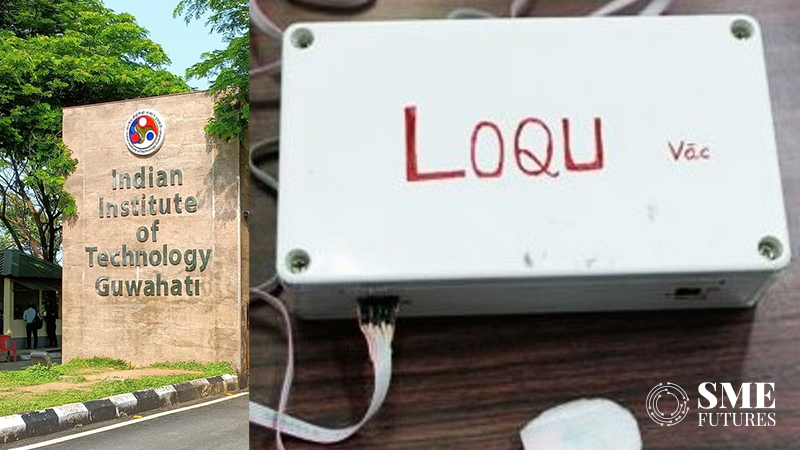India’s semiconductor industry: 5 compelling reasons for intellectual property (IP) creation
Despite challenges in semiconductor manufacturing, India’s strength lies in intellectual property (IP) creation
Parul April 25, 2024

MORE IN Technology
The future of AI: 5 key trends to watch
Direct to Mobile (D2M) technology: Is it a game-changer for businesses in India?
Google’s Gemini AI app to land on phones, making it easier for people to connect to a digital brain
Technology to run India’s sectoral trends for 2024, says India Inc.
The Indian government has intensified its focus on the semiconductor industry, particularly after the foundation stone was laid for the Dholera plant. There’s a surge in discussions regarding the manufacture and design of chips in India. However, amidst these discussions, it’s crucial to recognise the critical role of IP in fostering job creation, quality enhancement, competitiveness, and manufacturing prowess. India’s semiconductor industry is witnessing significant growth, with companies like Synaptics investing heavily in design centers and IP development. Despite challenges in semiconductor manufacturing, India’s strength lies in intellectual property (IP) creation.
Against the backdrop of initiatives such as Start-up India, Make in India, and Design in India, spearheaded by the Indian government, the emphasis on IP creation emerges as a linchpin for success. Moreover, IP creation will empower the startup ecosystem by fostering innovation, attracting investment, and establishing a competitive edge. It will enable startups to protect their unique designs, attract collaborations, and secure funding, thus driving growth and enhancing their position in the semiconductor industry.
Here are 5 compelling reasons why India should prioritise IP creation to propel its growth and global competitiveness.: –
Capitalising on Talent Pool: India’s engineering and technology talent pool is unparalleled, annually producing 15 lakh engineering graduates for a $3.7 trillion economy. With the highest number of engineers worldwide and 2500 engineering colleges, 1400 polytechnics, and 200 architecture schools, India prioritises technical education and innovation. This robust foundation positions India to excel in semiconductor IP development.
Focus on Innovation: While semiconductor manufacturing grabs headlines, the real value lies in design and invention, the foundation of IP creation. Emphasising IP creation encourages innovation by fostering an environment where engineers understand the entire design process from concept to system implementation. This holistic approach enables the integration of innovative solutions, ultimately leading to superior products. Unlike many semiconductor design companies, Synaptics’ approach involves its entire team at its Bangalore facility in end-to-end design processes, fostering a sense of ownership and leading to innovation and product excellence.
Strategic Investment: India has the potential to excel in niche areas such as wireless technology within the semiconductor domain. The global Bluetooth 5.0 market is projected to grow by 11%, resulting in a market value of $7.0 billion by 2027. Hence, India can carve out a unique position in the global semiconductor market by focusing on IP development in wireless connectivity. Synaptics’ investment in wireless technology in India underscores this sector’s potential for growth and innovation.
Geopolitical Advantage: In today’s geopolitical climate, IP is paramount. China and Taiwan have highlighted their role in maintaining competitiveness. Prioritising IP development positions India as a critical player in the semiconductor market, safeguarding its interests. PM Narendra Modi emphasized the significance of electronic chips in India’s technological advancement at the “Chips for Viksit Bharat” event.
Long-Term Sustainability and Growth: Building a robust ecosystem for IP creation fosters long-term sustainability and growth. It ensures that India doesn’t merely participate in the semiconductor value chain but leads in innovation and technology advancement. By owning and licensing valuable IP, India can establish itself as a key player in shaping the future of semiconductor technologies. Synaptics’ investment in Capex for testing and verification equipment in India reflects a commitment to long-term sustainability through IP-focused initiatives.
As India charts its course in the semiconductor space, it’s imperative to prioritise IP creation as a cornerstone of its strategy. This approach aligns with India’s existing strengths, leverages its talent pool, and positions the country for sustainable growth and competitiveness in the global semiconductor landscape. By fostering a conducive environment for IP development and innovation, India can emerge as a powerhouse in semiconductor technologies, driving technological advancement and economic prosperity.











